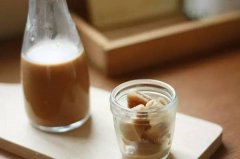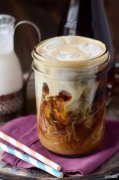Sunburn Burundi Flavor Description Which brand of Burundi coffee is good

For the exchange of professional baristas, please follow the coffee workshop (Wechat public account cafe_style)
Flavor description: rich aromas of raisins, BlackBerry jam and ripe peaches, sweet aromas of cranberries, citrus and peach juice in the front, and rich sweetness of caramel and orange jam filled with the whole cup of coffee. the sun's fermented wine is also very prominent, such as orange wine or peach taste, is definitely a unique Burundian boutique coffee.
Bourbon coffee (French: Caf é Bourbon) is a kind of coffee produced by growing coffee trees in bourbon cultivation of Arabica coffee. Bourbon coffee was originally grown in Reunion, which was also known as bourbon Island (le Bourbon) before 1789. Later occupied by France to connect with the African continent and Latin America, it is now one of the two most popular producers of Arabica coffee in the world. Bourbon coffee is usually produced between 3500 and 6500 feet above sea level.
Factory name: Qianjie Cafe address: No. 10 Baoqian Street, Yuexiu District, Guangzhou City, contact: 020-38364473 shelf life: 90 net content: 227g Packaging: raw and cooked coffee beans in bulk: coffee cooked beans origin: other / other roasting degree: moderate roasting
Burundi Kayanza Kabuye Natural
Country: Burundi
Growth: 1750 m
Production area: Kayanza Kabuye
Baking degree: medium baking
Treatment: insolation
Hand-washed Burundi. 15g powder, medium grinding (small Fuji ghost tooth knife 4 grinding), v60 filter cup, 88-89 degrees water temperature, 30g water injection for 27 seconds, steam for 27 seconds, water cut off to 105g water, wait for half of the water in the powder bed, then water injection, slow water injection until 225g water, no water powder ratio at 1:15, extraction time at 2:00
Burundi is located south of the equator in east-central Africa. It is bordered by Rwanda to the north, Tanzania to the east and south, Congo (Kinshasa) to the west, and Lake Tanganyika to the southwest. There are many plateaus and mountains in the territory, most of which are composed of the plateau on the east side of the East African Rift Valley, with an average elevation of 1600 meters above sea level, which is known as the "mountain country". More than half of them are located on the surface of the famous Lake Lake Tanganyika. The capital is Bujumbura. The lakeside and river valleys in the west and the savanna climate in the east; the tropical mountain climate in the central and western regions. The annual average temperature is 20 ℃ 24 ℃, which can be as high as 33 Mel. The heavy rainy season is from May to May, the light rainy season is from October to December, and the other months are dry season.
Burundian coffee bears a striking resemblance to neighboring Rwanda, where coffee from the two countries is often confused. Burundian coffee is mainly grown in bourbon, with traditional wet processing of coffee cherries. Its boutique coffee is characterized by elegant sweetness and bright citrus aromas. This batch belongs to bourbon species micro batch.
Variety: bourbon species
Processing plant: Parnjia processing plant
Flavor: grape peel, orange wine, fermented fruit
This batch is sunburn bourbon species, micro-batch, producing area is located in Cabuye District, Cajuza Province, Painjia treatment plant Marda peak, very high altitude, and even more than 2000 meters of mountain area, fertile soil, gravel soil, very suitable for coffee growth, recognized as the best coffee processing plant in Burundi
Burundi has the most diverse and successful coffee industry in the world, and has its own characteristics. Coffee in this country was introduced by Belgian colonists in 1930 and is now grown only on small farms. Unfortunately, many of these farms are on the border with war-torn Rwanda, putting pressure on coffee production. Almost all coffee produced in Burundi is Arabian coffee beans, while coffee trees in Ngozi are planted at an altitude of more than 1200 meters. Burundian coffee has a rich aroma and excellent acidity, and most of its products are exported to the United States, Germany, Finland and Japan.
Important Notice :
前街咖啡 FrontStreet Coffee has moved to new addredd:
FrontStreet Coffee Address: 315,Donghua East Road,GuangZhou
Tel:020 38364473
- Prev

Sunburn Burundi correct way to drink Burundi coffee bean prices
Professional barista exchange please pay attention to coffee workshop (Weixin Official Accounts cafe_style ) Factory name: Qianjie Cafe Address: No. 10 Baoan Qianjie, Yuexiu District, Guangzhou City Contact: 020-38364473 Shelf life: 90 Net content: 227g Packaging method: Bulk coffee beans Ripe degree: Coffee ripe beans Origin: Other/other Roasting degree: Medium Roast Burundi Kayanza Kab
- Next

What's the taste of Burundi in the sun? how to brew Burundian coffee?
For the exchange of professional baristas, please pay attention to the coffee workshop (Wechat official account cafe_style) Burundi (Burundi) has the most varied and successful coffee industry in the world, and has its own characteristics. Coffee in this country was introduced by Belgian colonists in 1930 and is now grown only on small farms. Unfortunately, many of these farms are connected to war-torn Rwanda.
Related
- Detailed explanation of Jadeite planting Land in Panamanian Jadeite Manor introduction to the grading system of Jadeite competitive bidding, Red bid, Green bid and Rose Summer
- Story of Coffee planting in Brenka region of Costa Rica Stonehenge Manor anaerobic heavy honey treatment of flavor mouth
- What's on the barrel of Blue Mountain Coffee beans?
- Can American coffee also pull flowers? How to use hot American style to pull out a good-looking pattern?
- Can you make a cold extract with coffee beans? What is the right proportion for cold-extracted coffee formula?
- Indonesian PWN Gold Mandrine Coffee Origin Features Flavor How to Chong? Mandolin coffee is American.
- A brief introduction to the flavor characteristics of Brazilian yellow bourbon coffee beans
- What is the effect of different water quality on the flavor of cold-extracted coffee? What kind of water is best for brewing coffee?
- Why do you think of Rose Summer whenever you mention Panamanian coffee?
- Introduction to the characteristics of authentic blue mountain coffee bean producing areas? What is the CIB Coffee Authority in Jamaica?

